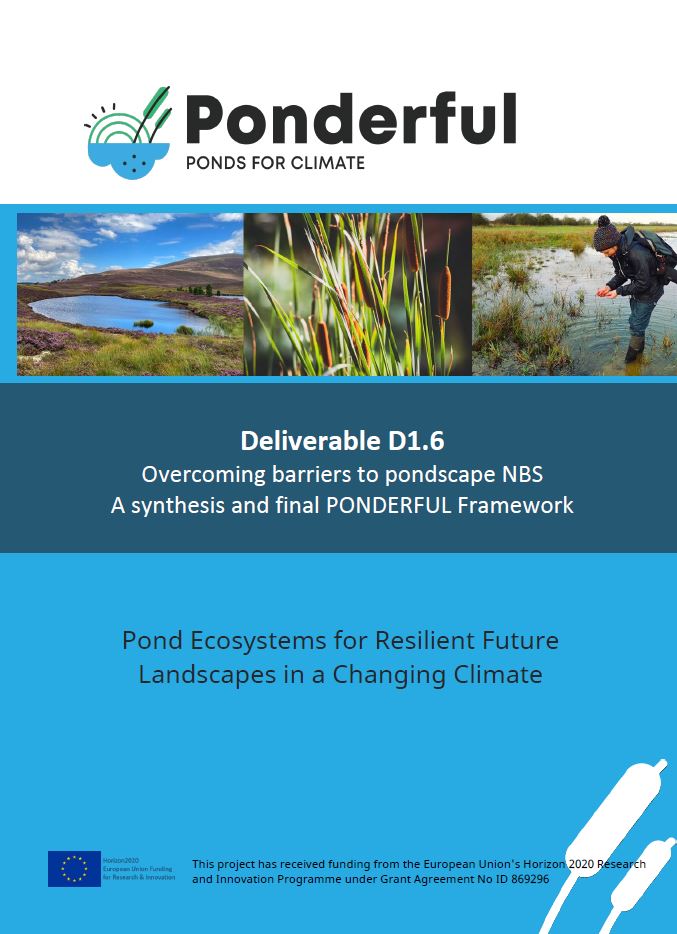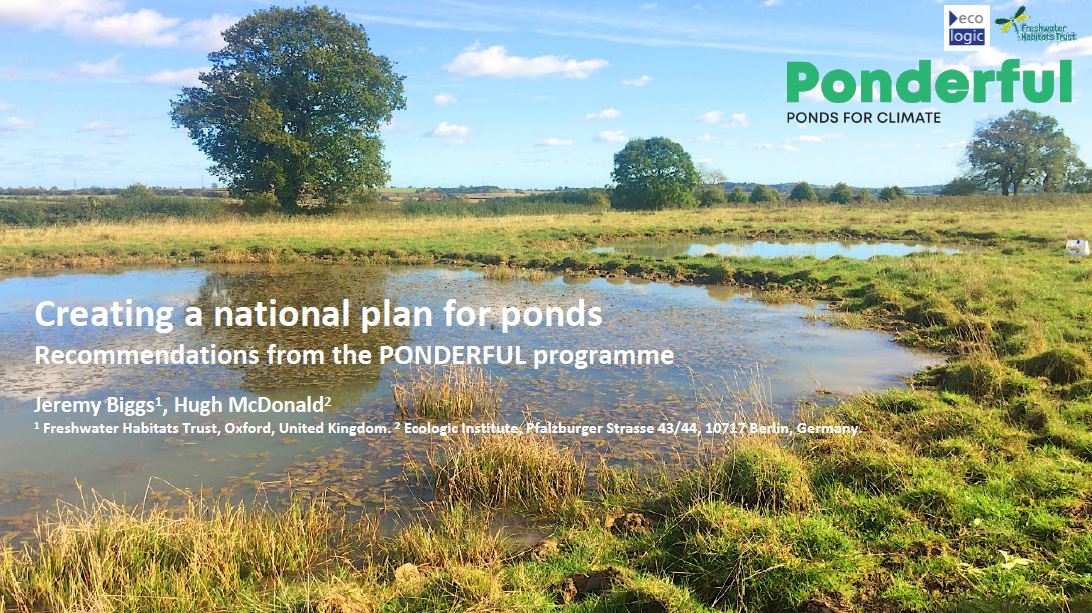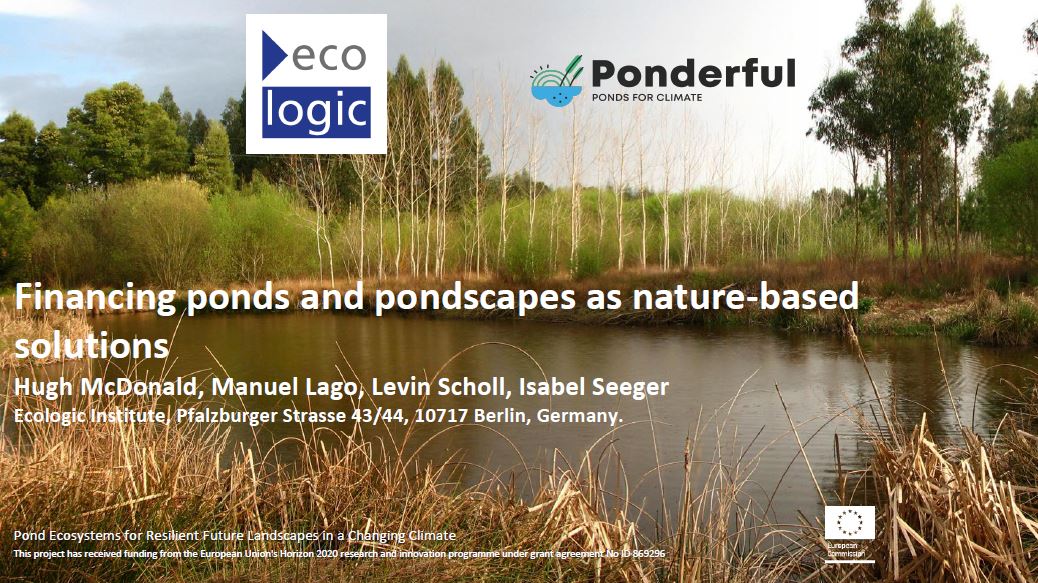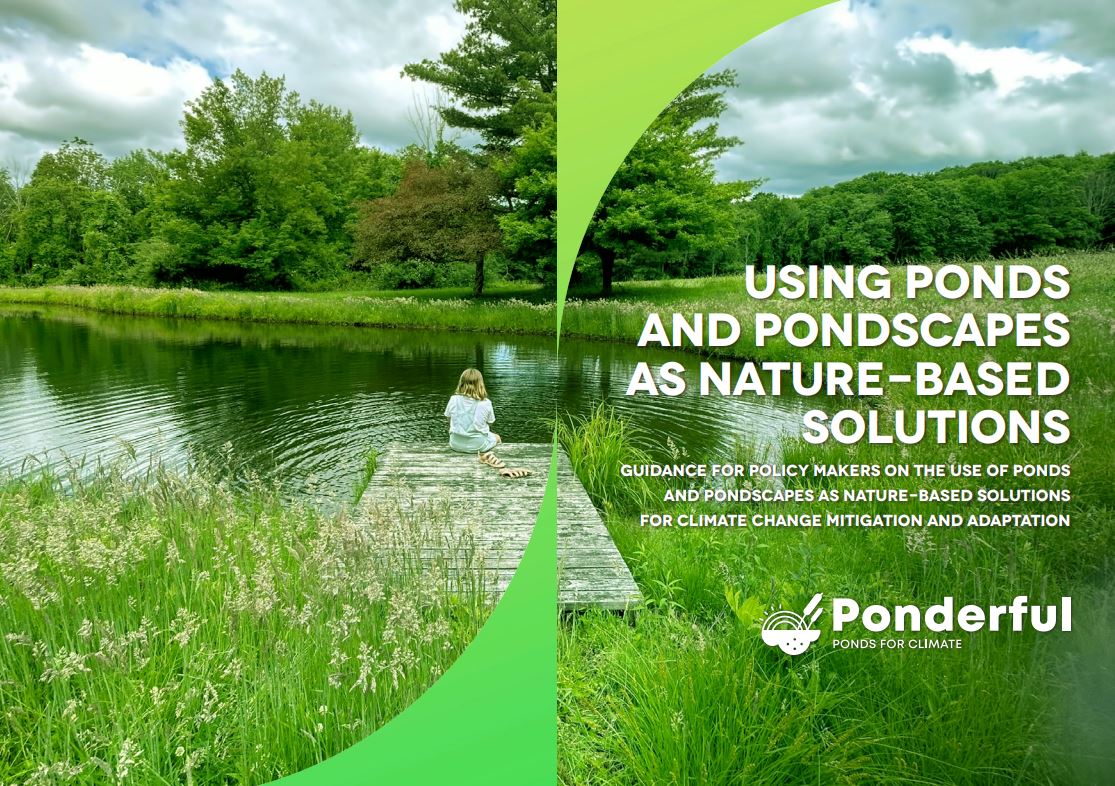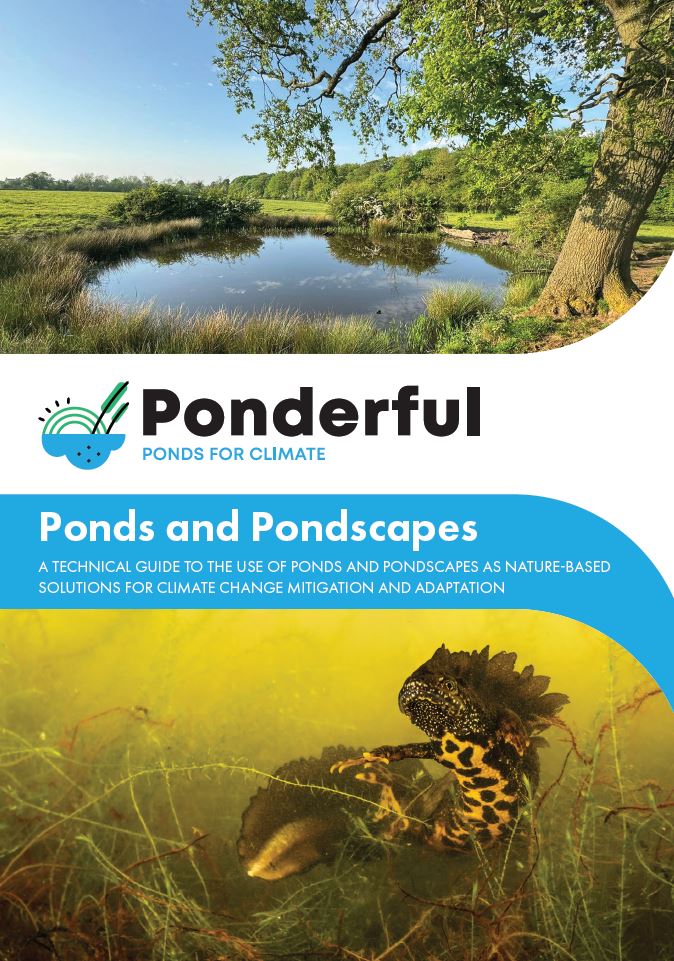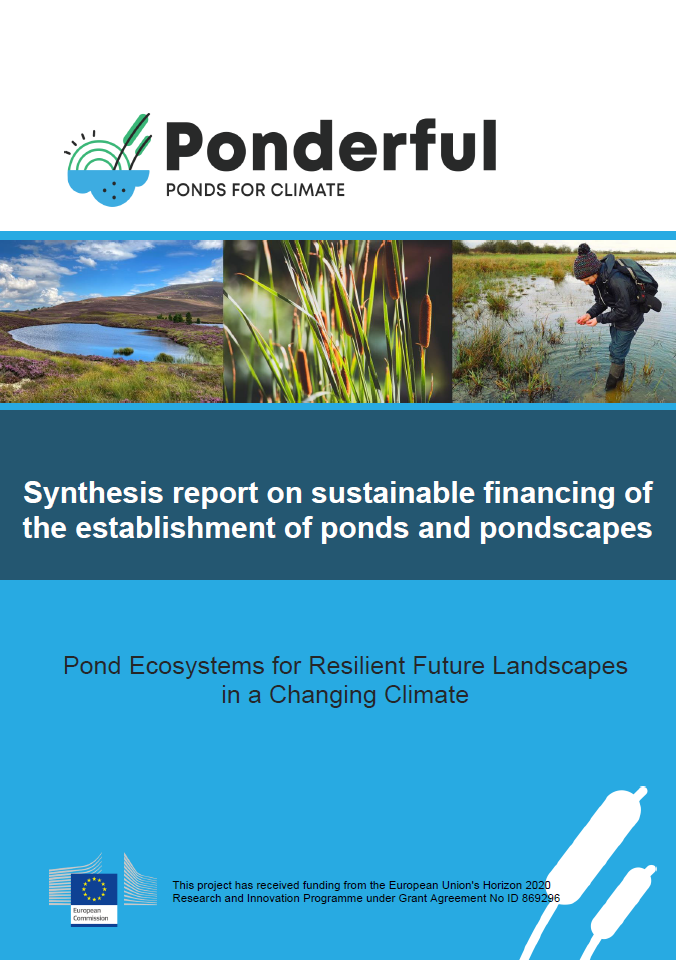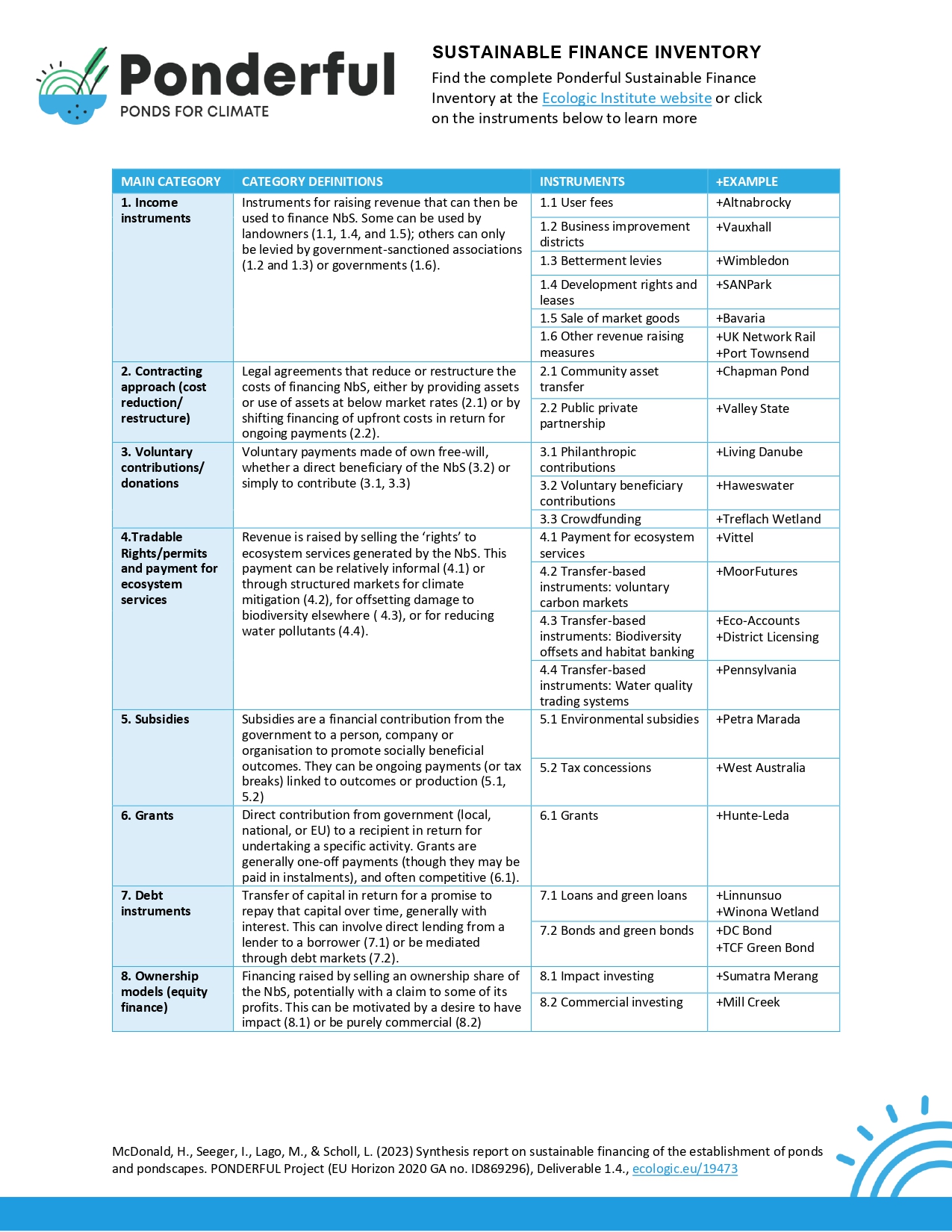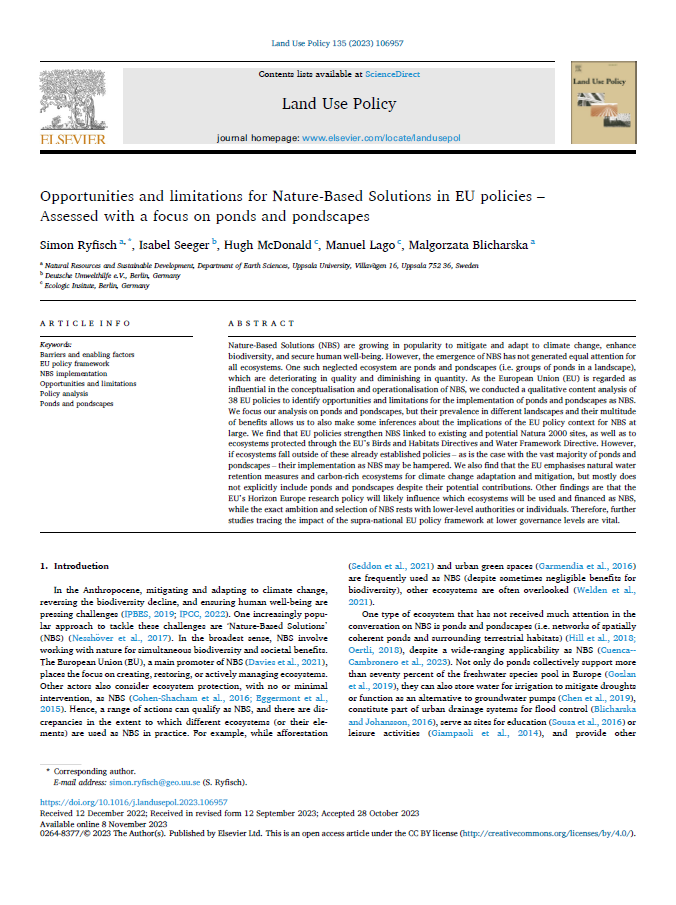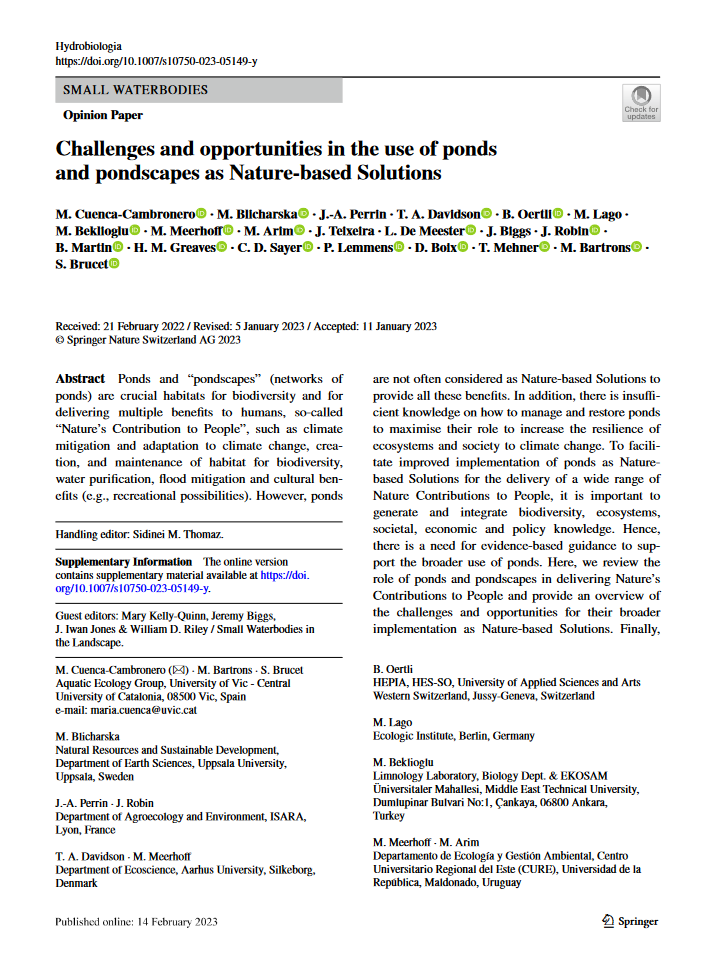Pond Ecosystems for Resilient Future Landscapes in a Changing Climate (PONDERFUL)
- Project
- Research Program
- Duration
-
-
Even the smallest ponds can play a big role in fighting climate change. Largely neglected and generally undervalued, ponds are also remarkably important for biodiversity conservation.
Small water bodies such as ponds are, both globally and in Europe, the most numerous fresh waters, collectively dominating both water area (30-50% of standing water worldwide) and making key contributions to aquatic biodiversity (e.g. supporting 70% of the freshwater species pool in European landscapes). Ponds (small standing waters varying in size from 1 m2 to about 2-5 ha in area that may be permanent or seasonal, man-made or naturally created) are crucial for biodiversity conservation, supporting a larger proportion of rare, endemic and threatened freshwater species, and are key elements of blue landscape connectivity. In addition, ponds deliver multiple ecosystem services and Nature's Contributions to People, including carbon storage and climate regulation, water provision, flood control, groundwater recharge, pollution amelioration, recreation and tourism. Given their abundance and importance for biodiversity and ES, and their potential influence on global carbon dynamics ponds have the potential to play a significant role in mitigating and adapting to climate change (CC).
The H2020 EU-funded PONDERFUL project will investigate how ponds can be used as nature-based solutions (NBS) for climate change. It will evaluate the interaction and feedback between biodiversity, ecosystem services and climate in pondscapes. PONDERFUL will also develop future scenarios for pondscapes in the EU, Latin American and Caribbean States (CELAC), where PONDERFUL test and demo sites will be located. The findings of these tests will support development of a sustainable finance and investment guide for implementation of the proposed NBS. It will also raise awareness among policymakers about the use of pondscapes for biodiversity conservation.
Specific project objectives
The main aims of the research in PONDERFUL will be to increase understanding of the ways in which ponds, as a Nature-Based Solution (NBS), can help society to mitigate and adapt to climate change, protect biodiversity and deliver ecosystem services. The project starts in December 2020, and runs for 4 years.
The project has five main components:
- Developing a strategic approach to engagement with stakeholders, to ensure that they are able to effectively implement the benefits of ponds as Nature-Based Solutions
- Through the generation of extensive new biodiversity and ecosystem services datasets, to better establish the relationship between pond biodiversity and the delivery of ecosystem services
- Establish models that enable us to test and optimise practical scenarios for the use of ponds and Nature-Based Solutions
- Create a set of demonstration sites across Europe which show to practitioners and policy makers how ponds can help to mitigate and adapt to the effects of climate change
- Ensure that the project’s outputs are widely known to policy makes, practitioners and other stakeholder.
The role of Ecologic Institute
Ecologic Institute co-leads the social-science-focussed work package, which focuses on stakeholder involvement, policy, society, and sustainable financing. Through research and an expert workshop, we will develop a live inventory of sustainable finance options for nature-based solutions. This will enable our direct support to demosites to develop their own sustainable financing plans, and to synthesise insights on sustainable financing of pond NBS across the project. On the policy side, we will explore how local, regional, national, and EU level policies can support or hinder the implementation of multi-functional ponds nature based solutions.
In addition, Ecologic Institute will support the 13 demosites across Europe, Turkey, and Uruguay. A key focus will be developing and implementing economic evaluations of the benefits and costs of ponds as nature-based solutions. Ecologic Institute will also support overall project management and communication, and feed in results from previous research projects including AQUACROSS, DESSIN, and COACCH, among others.
A diverse international consortium
The project brings together experienced researchers from nine European states and from Turkey and Uruguay. PONDERFUL is committed to gender balance and gender mainstreaming through the project actions and content and are pleased to note that the current consortium team is 53% female. PONDERFUL is led by the University of Vic (Spain) and beyond the involvement of Ecologic Institute, the full project team comprises: IGB Leibniz-Institute of Freshwater Ecology and Inland Fisheries; Katholieke Universiteit Leuven; Haute Ecole Specialisée de Suisse Occidentale; Universitat de Girona; Ecologic Institute, Berlin; University College London; Middle East Technical University; CIIMAR - Centro Interdisciplinar de Investigação Marinha e Ambiental; Aarhus Universitet; Uppsala Universitet; Bangor University; Technische Universitaet Muenchen; Institut Superieur d'agriculture Rhone Alpes I.S.A.R.A; Freshwater Habitats Trust; Universidad de la Republica, Uruguay; Randbee Consultants and Amphi International.




